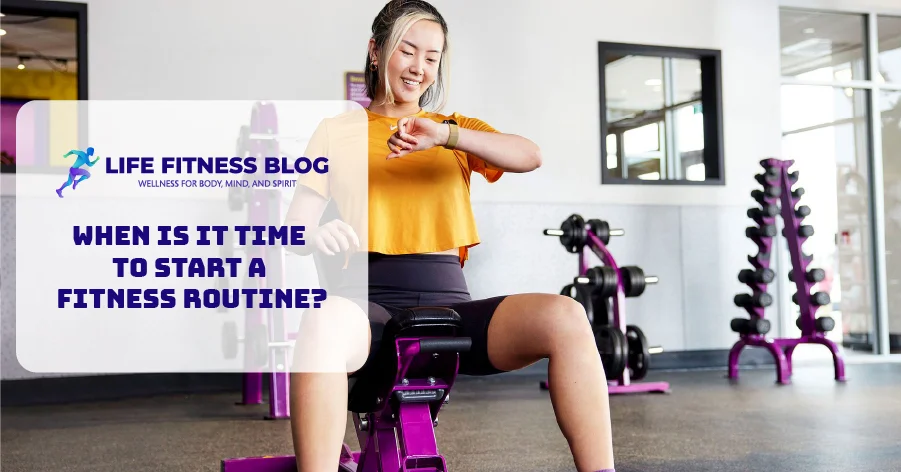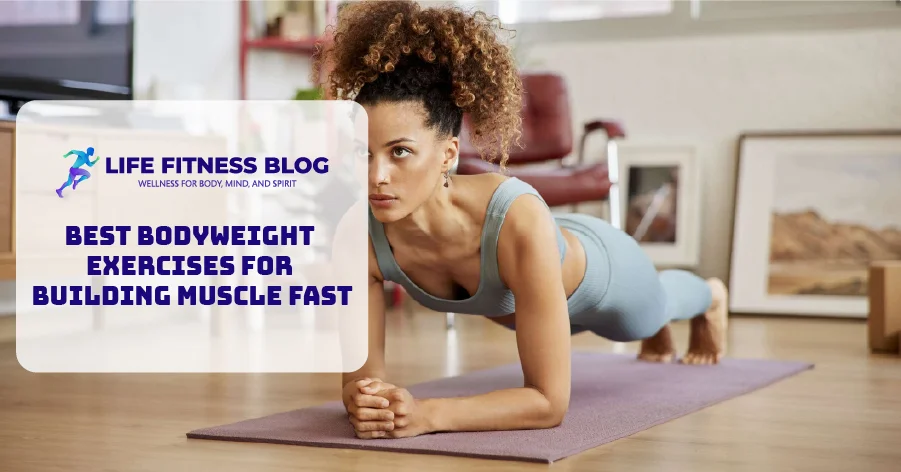Starting a fitness journey is exciting and can change your life. But, timing is everything. Knowing when to start is key to lasting success and reaching your health goals. Whether you want to lose weight, get stronger, or live healthier, listening to your body and mind is crucial.
We’ll look at important factors to find the best time to start your fitness routine. This includes checking your physical and mental readiness, and if your lifestyle fits. By matching your needs with a good plan, you’re set for lasting success and better health.
Table of Contents
Signs Your Body is Ready for a Fitness Journey
Starting a fitness journey is exciting and can change your life. It’s key to make sure your body is ready. By noticing physical, mental, and lifestyle signs, you can achieve your weight management and health goals.
Physical Indicators of Readiness
Feeling more energetic is a big sign your body wants to move. If you’re more awake and lively, it means your body is ready for exercise. Also, sleeping better and feeling less sore after working out are good signs.
Mental Preparation Signals
- Feeling more motivated to live healthier
- Wanting to push yourself physically
- Feeling less stressed or anxious about starting a new routine
Lifestyle Compatibility Checks
It’s important your lifestyle fits with a regular fitness routine. Look for signs you have the time, resources, and support to focus on your when is it time to start a fitness routine? goals. This means having a flexible schedule, access to workout gear or places, and people who support and motivate you.
| Physical Indicators | Mental Preparation | Lifestyle Compatibility |
|---|---|---|
| Increased energy levels | Heightened motivation | Flexible schedule |
| Improved sleep quality | Desire to challenge yourself | Access to exercise facilities |
| Reduced muscle soreness | Decreased stress or anxiety | Supportive network |
By checking these signs, you can see if your body is ready for a fitness journey. Preparing well and setting yourself up for success helps you achieve lasting results.
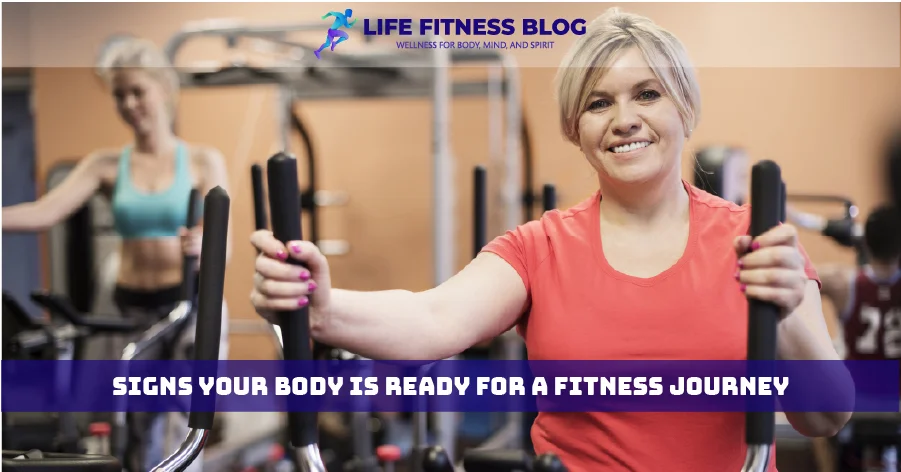
Understanding the Importance of Timing in Fitness Success
Timing is key when starting a workout plan or beginner exercises. The right time can boost your motivation and help you stick to your goals. It’s all about finding the best time for your fitness.
It’s important to match your workouts with your body’s natural rhythms. Some people love morning workouts to kickstart their day. Others prefer evening sessions to relax and unwind. Finding the perfect time for your workouts can make them more enjoyable and effective.
Seasonal changes also play a role in your fitness journey. In warmer months, you might enjoy outdoor activities like running or cycling. When it’s colder, indoor workouts or strength training might be better. Adjusting your workout plan to the seasons can keep you motivated all year round.
Additionally, your fitness schedule should fit your life stage. Younger people might have more free time, while older adults or those with busy lives need to plan better. Finding the right balance can help you keep up with your beginner exercises over time.
“The secret of getting ahead is getting started. The secret of getting started is breaking your complex overwhelming tasks into small manageable tasks, and then starting on the first one.”
Remember, there’s no one-size-fits-all approach to timing your fitness journey. By aligning your workout plan with your body’s rhythms, seasonal preferences, and life stage, you can increase your chances of success. Fitness can then become a lasting part of your lifestyle.
When Is It Time to Start a Fitness Routine?
Timing is key when starting your fitness goals and adopting a healthy lifestyle. Whether you like mornings or evenings, knowing the best time depends on the season and your life stage. This helps you pick the perfect moment to begin your fitness journey.
Morning vs Evening Workout Considerations
There’s no one perfect time for exercise. Morning workouts can energize you, while evening sessions help you relax after a long day. Think about your natural energy, work schedule, and what you prefer to find the best time for you.
Seasonal Timing Factors
The seasons can affect your fitness routine. In warm weather, you might enjoy outdoor activities like running or cycling. In cold weather, indoor workouts like gym sessions or home programs might be better. Adjusting your routine to the seasons keeps you motivated and active all year.
Life Stage Assessment
Your life stage also matters when starting a fitness routine. Young adults often have more free time, while parents or those nearing retirement face scheduling challenges. Knowing your responsibilities helps you find the best time to focus on your fitness goals and healthy lifestyle.
| Life Stage | Fitness Considerations |
|---|---|
| Young Adult | More flexibility in schedule, opportunity to establish long-term fitness habits |
| Parenthood | Childcare responsibilities, need to balance family and personal time |
| Retirement | More time available, but potential health concerns or reduced mobility |
By thinking about the factors that affect the best time to start, you can achieve lasting success and a healthy lifestyle.
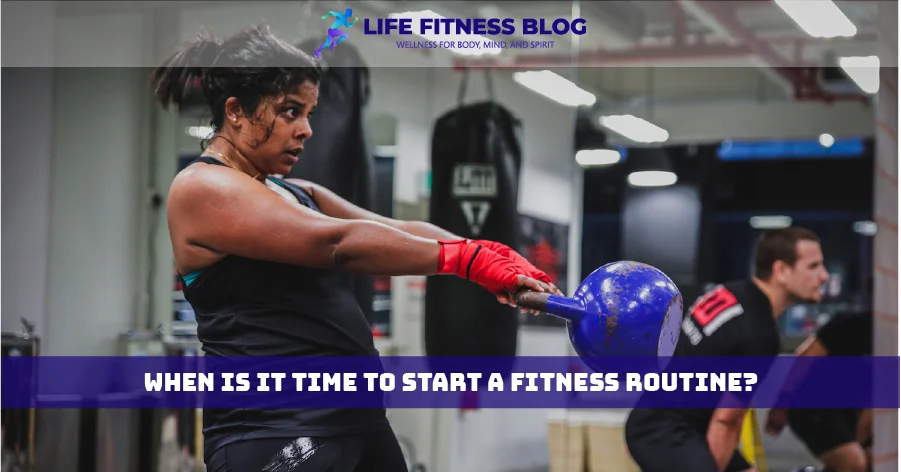
Setting Realistic Fitness Goals for Beginners
Starting your weight management and beginner exercises journey is exciting. Setting realistic fitness goals is key to success. Achievable goals help you stay motivated and celebrate your wins.
Using the SMART framework is a great way to set goals:
- Specific – Goals should be clear, like “I will walk for 30 minutes, 3 times a week.”
- Measurable – Goals should have numbers, like “I will lose 10 pounds in 3 months.”
- Achievable – Goals should be challenging but doable, based on your current fitness and lifestyle.
- Relevant – Goals should match your health and wellness goals, like improving heart health or building muscle.
- Time-bound – Goals should have a deadline, like “I will run a 5K in 6 months.”
SMART goals help you map out your weight management and beginner exercises journey. They make it easier to track your progress and stay motivated.
| Goal Type | Example |
|---|---|
| Weight Loss | Lose 10 pounds in the next 3 months |
| Cardio Endurance | Run a 5K in under 30 minutes within the next 6 months |
| Strength Building | Increase my squat weight by 20 pounds in the next 2 months |
| Flexibility | Touch my toes with straight legs for 30 seconds, 3 times a week |
Your fitness goals should fit your unique needs and likes. By setting realistic goals, you can start your weight management and beginner exercises journey with confidence and excitement.
Essential Components of a Successful Workout Plan
Creating a good workout plan is key to reaching your fitness goals. It doesn’t matter if you love the gym or are just starting. Knowing the important parts of a fitness routine is crucial for lasting success.
Cardio Exercise Basics
Cardio is the base of any good workout plan. It makes your heart healthier, boosts endurance, and helps with weight control. Adding different cardio activities like walking, jogging, cycling, or swimming keeps your routine interesting and balanced.
Strength Training Fundamentals
Strength training is vital in a workout plan. It builds muscle, strengthens bones, and improves physical function. Mixing resistance exercises like weightlifting, bands, or bodyweight exercises targets various muscles for a balanced body.
Flexibility and Recovery Elements
Flexibility and recovery are just as important as exercise. Adding stretching, foam rolling, and recovery techniques lowers injury risk, improves movement, and aids in muscle repair.
By adding these key elements to your workout plan, you’ll have a balanced fitness routine. It supports your health and well-being. Remember, sticking to it and slowly getting better is how you reach your goals and keep a healthy gym membership.
Common Barriers to Starting Your Fitness Journey
Starting a fitness routine can seem scary, even for the most eager people. But, knowing and beating common barriers can really help when it’s time to start a fitness routine. Let’s look at some big obstacles and how to get past them.
Lack of Time
Many say they don’t have enough time for workouts. Busy lives make it hard to find time. Try short, high-intensity workouts or morning or evening exercises to fit it in.
Lack of Motivation
Staying motivated is tough, especially at the start. Set realistic and achievable goals and celebrate small wins. Having a supportive group of friends or family can also help a lot.
Fear of Failure
Fear of not sticking to a routine or not seeing results can stop people. Remember, progress is not linear and setbacks happen. Focus on the journey, not just the end goal.
By tackling these common barriers, you can start a sustainable fitness routine that fits your life and goals. Starting is the hardest part, but with the right mindset, you can beat these obstacles and enjoy a rewarding fitness journey.
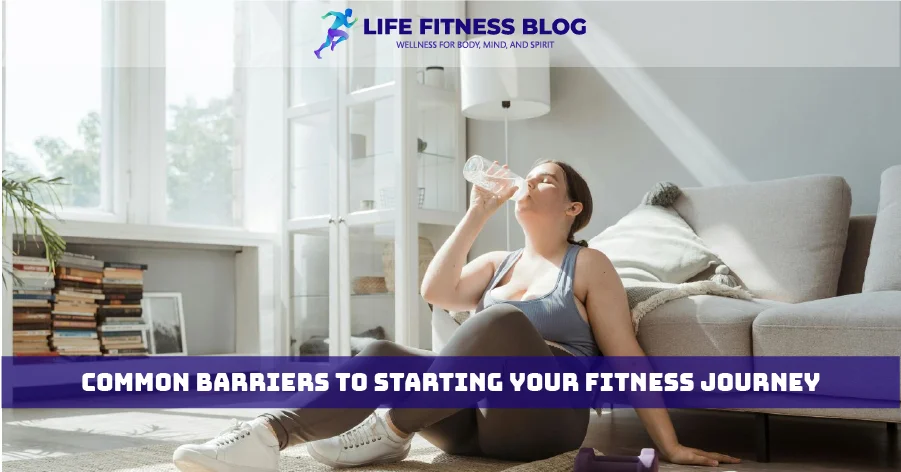
Creating a Sustainable Exercise Schedule
Creating a consistent exercise routine is crucial for reaching your fitness goals and living a healthy life. To make an effective workout schedule, consider these strategies:
Weekly Planning Strategies
Begin by planning your weekly schedule. Find the best times and days for exercise. Set aside specific times for workouts and try to keep a regular routine. This helps build a habit and makes it easier to follow your plan.
Balancing Work and Workout
Finding the right balance between work and exercise can be tough. But it’s key to lasting success. Look for ways to add physical activity to your day. This could be taking walks, using a standing desk, or working out during lunch.
Recovery Day Implementation
- Make sure to include recovery days in your plan. This lets your body rest and recover.
- Recovery days don’t mean you have to be completely still. They can include light activities like stretching, yoga, or easy walks.
- Remember to get enough sleep and eat well to help your body recover.
By using these strategies, you can make a workout plan that supports a healthy lifestyle and helps you reach your workout plan goals.
Choosing the Right Fitness Environment
Starting your fitness journey means picking the right place to work out. You might choose home workouts, gym memberships, or outdoor activities. Each option has its own benefits and fits different needs and goals.
Working out at home is convenient. You can follow beginner exercises and use online resources. This way, you can fit your workouts into your busy schedule. But, gyms offer more equipment, group classes, and expert advice to help you.
Outdoor activities like hiking or cycling are great too. They let you enjoy nature while exercising. Think about your budget, how easy it is to get there, and if you need help or guidance.
Conclusion
Starting your fitness journey is a significant step towards a healthier and happier life. By understanding the importance of timing, setting realistic goals, and creating a sustainable workout routine, you can overcome common barriers and achieve lasting results. Remember, progress is more important than perfection. Celebrate your achievements, stay motivated, and enjoy the process of transforming your health and well-being.
Also Read:
FAQs
How do I know if I’m physically ready to start a fitness routine?
Listen to your body. If you feel energized, have good sleep quality and have minimal joint pain, you might be ready.
What are some tips for staying motivated during a workout?
Set achievable goals, find a workout buddy, create a motivating playlist, and reward yourself for reaching milestones.
How often should I exercise as a beginner?
Aim for 3-4 days of exercise per week, starting with shorter, less intense workouts and gradually increasing duration and intensity.
What are some common mistakes beginners make when starting a fitness routine?
Common mistakes include overtraining, not listening to your body, and not fueling your body properly.
How can I stay consistent with my fitness routine?
Find activities you enjoy, make exercise a priority in your schedule, and track your progress to stay motivated.

